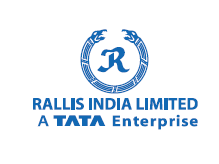KVIC registers record turnover in FY 2020-21 despite COVID-19 pandemic
The record performance assumes great significance as production activities remained suspended for more than three months during the nationwide lockdown
Khadi and Village Industries Commission (KVIC) has recorded its highest-ever turnover amidst the COVID-19 pandemic. In the year 2020-21, KVIC registered a gross annual turnover of Rs 95,741.74 crores, as compared to Rs 88,887 crores turnover in 2019-20, thus, registering an increase of 7.71 per cent.
KVIC’s record performance in 2020-21 assumes great significance as production activities remained suspended for more than three months during the nationwide lockdown announced on March 25 last year. During this period, all Khadi production units and sales outlets too remained closed that severely affected the production and sales. The innovative marketing ideas of Minister for Micro, Small and Medium Enterprises, Nitin Gadkari further diversified KVIC’s product range, scaled up to local production and paved the way for Khadi’s successive growth.
Compared to the year 2015-16, the overall production in Khadi and Village Industry sectors in 2020-21 has registered a whopping growth of 101 per cent while the gross sales during this period increased by 128.66 per cent.
A host of initiatives like the launch of Khadi e-portal, Khadi masks, Khadi footwear, Khadi Prakritik Paint, Khadi hand sanitisers, etc., setting up of a record number of new PMEGP units, new SFURTI clusters, Government’s push to ’Swadeshi’ and KVIC’s historic agreements with paramilitary forces for the supply of provisions increased the turnover of village industry sector during the pandemic. Compared to the production of Rs 65,393.40 crores in 2019-20, the production in the village industry sector increased to Rs 70,329.67 crores in 2020-21. Similarly, in FY 2020-21, the sales of village industry products stood at Rs 92,214.03 crores as compared to Rs 84,675.29 crores in 2019-20.
The production and sales in the Khadi sector, however, slightly declined as spinning and weaving activities across the country took a major hit during the pandemic. The overall production in the Khadi sector in 2020-21 was recorded at Rs 1904.49 crores as compared to Rs 2292.44 crores in 2019-20, while the overall Khadi sales stood at Rs 3527.71 crore as compared to Rs 4211.26 crore in the previous year.
Vinai Kumar Saxena, Chairman, KVIC said that during the pandemic people responded enthusiastically to the calls of ’Aatmanirbhar Bharat’ and ’Vocal for Local.’
He further mentioned that during this period, KVIC’s main focus was to create sustainable employment for artisans and unemployed youth. Faced with economic distress, a large number of youths took up self-employment and manufacturing activities under PMEGP which increased the production in the village industry sector. At the same time, the sales of Khadi and village industry products grew significantly following the Prime Minister’s appeal to buy Swadeshi products.
The record performance assumes great significance as














